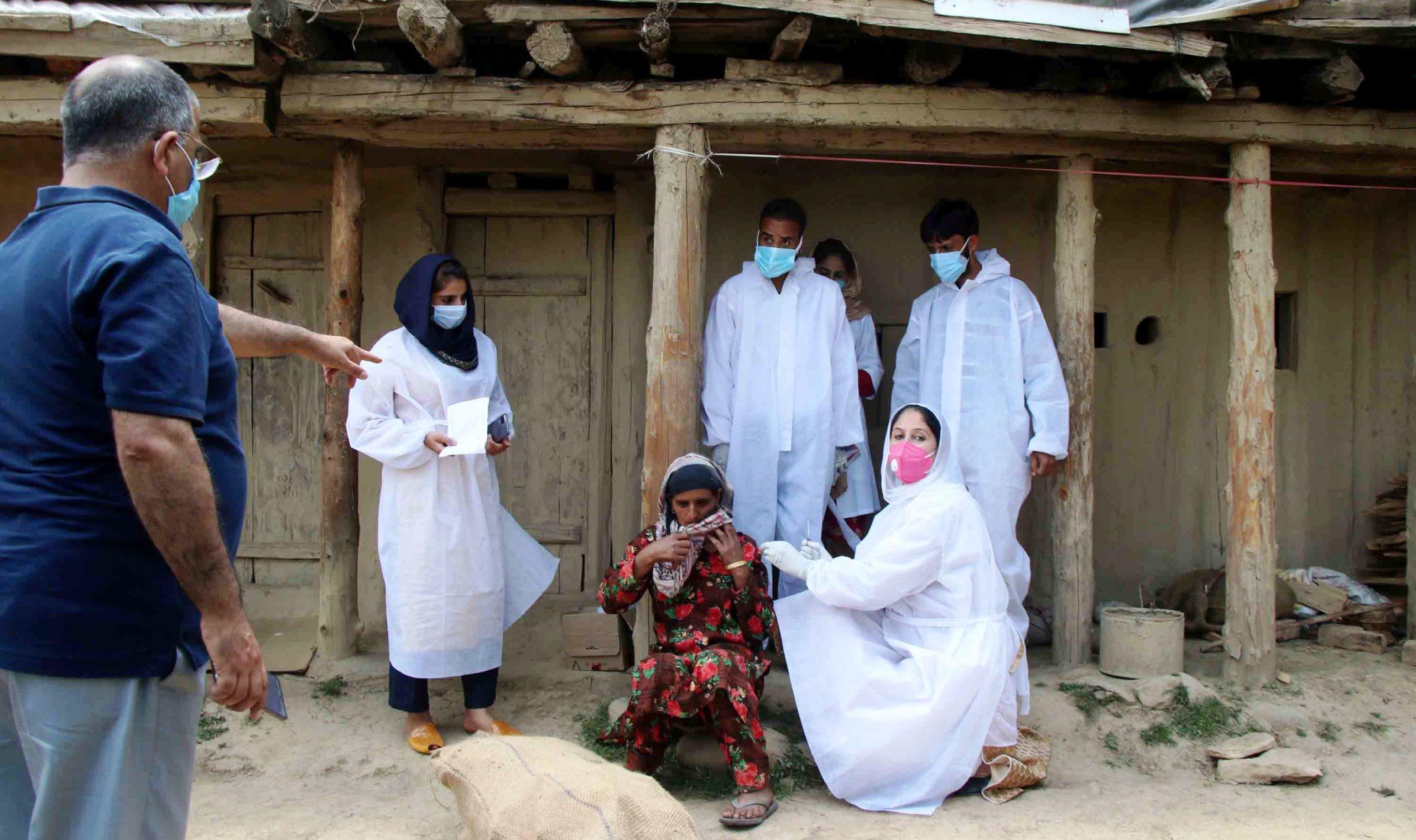While the prevention would be the best insurance against the possible resurgence of the pandemic in near future, the government would also need to further consolidate the healthcare infrastructure to it take on, writes Riyaz Wani

In a recent meeting with the Covid Task Force and the other senior government officials, Lt Governor, Manoj Sinha called for a strict adherence to Covid19 protocols to pre-empt the expected third wave. Sinha also directed the Health and Information departments to come up with a comprehensive district-level plan for conducting awareness campaigns. He also asked the Deputy Commissioners and the district police officers to rope in religious leaders and community heads for spreading awareness regarding adherence to Covid19 appropriate behaviour.
But on the ground, the Covid protocols are observed in the breach. The situation has, more or less, gone back to square one. The people seem to have concluded once again that the pandemic is all but over. And which is not the case – albeit, the second Covid19 wave may be waning.
Subsiding Second Wave
In a recent statement, the union health ministry has said that India’s total recoveries have risen to over three crore. The active cases are now 27 per cent of the total caseload. The progressively decreasing trend of infections, with some exceptions, is proof that the devastating second wave is on its way out.
That said, the pandemic is not over yet. India could still see the much-feared third wave of the pandemic sooner than later. According to a report by the State Bank of India early in July, the third wave may rear its head from the middle of August, coming around while the country is still fighting the second wave.
But for now, we can take heart from the fact that the infections are decreasing. The drop has come amid the easing of the curbs on movement and hence is all the more welcome. But while the second wave is easing, the vaccination is not picking up commensurately leaving India vulnerable to a third wave. India has already increased the gap between two vaccine doses to 12 to 16 weeks from six to eight weeks. This was mainly done to compensate for the shortfall of the vaccines and to inoculate more people with the first dose.

Vulnerability
There is a significant number of the population above 65 years of age that has not received its second dose. Being in the high-risk and vulnerable group, the gap in their case needs to be urgently reduced. The government should make an exception for them.
At the same time, now that the government has got a grip on the second wave, care needs to be taken to pre-empt the third wave. While loosening the curbs to reopen the economy, the government has to strictly enforce the Standard Operating Procedure in public life. This should be done while simultaneously speeding up the vaccination in the country. This can only happen if more vaccines become available and the gap between the two doses is reduced.
Covid Protocol
Going forward, the government has to ensure that Covid-appropriate behaviour is followed. The decreasing trend of infections is good news. The government should now build upon it by scaling up the production of vaccines. Much is at stake in India and, in turn, in Kashmir. The economy that has been battered over the last two years can’t afford one more year of disruption. The businesses could only reopen for a brief duration before being shut again, either because of political turmoil or due to Covid19. According to Kashmir’s business bodies, the lockdowns led to a loss of over Rs 50,000 crore last year. As a result, the economy has grievously suffered.
In Kashmir, the impact has been most severe. Already lakhs of people are jobless or have had their incomes slashed. There’s no other option but to vaccinate a critical mass of people to get a handle on the pandemic. That is the only answer to the unprecedented health crisis facing us and the world as a whole.
The reason for the nationwide drop in cases can be attributed to a blend of lockdown and vaccination. The centre has now set for itself the ambitious goal of vaccinating the entire country by the end of this year. So, the effort is to pace up the vaccination drive. However, it won’t be easy to accomplish the massive task. More so, with vaccines still in short supply.
Behave Responsibly
That said, people will need to be more responsible about their conduct outside the home. The use of face masks and sanitisers should be made mandatory till the time the world gets a grip on the disease. Primarily, the fight against the Covid-19 pandemic has to be fought by the people. They can choose to exercise caution in their public behaviour, wear masks and wash hands.
This is all the more important as the third wave is also expected to hit the children, who have so far been largely insulated from the depredation of the virus. A significant number of the victims of the second wave were the younger population.
At the same time, while the prevention would be the best insurance against the third wave, the government would need to further consolidate the healthcare infrastructure to take it on.














